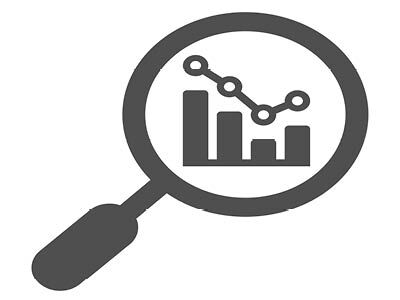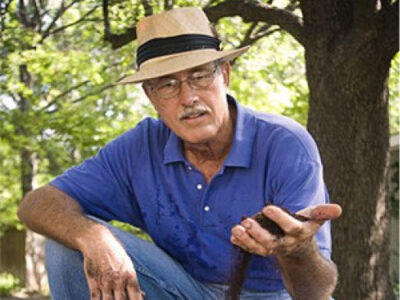Bolivia holds a tight runoff as voters seek a president to lift them from crisis
News > Top Stories

Audio By Carbonatix
12:20 AM on Sunday, October 19
By ISABEL DEBRE
LA PAZ, Bolivia (AP) — Bolivians voted on Sunday in an unprecedented presidential runoff between two conservative, capitalist candidates, ushering in a new political era after almost 20 years of one-party rule by the Movement Toward Socialism party.
Voters are choosing between former right-wing President Jorge “Tuto" Quiroga and centrist Sen. Rodrigo Paz as they look for a leader to lift them out of their country’s worst economic crisis in decades.
Since 2023, the Andean nation has been crippled by a shortage of U.S. dollars that has locked Bolivians out of their own savings and hampered imports. Year-on-year inflation soared to 23% last month, the highest rate since 1991. Fuel shortages paralyze the country.
Quiroga and Paz have vowed to break with the budget-busting populism that dominated Bolivia under the Movement Toward Socialism, or MAS, party founded by Evo Morales, a charismatic coca growers’ union leader who became Bolivia’s first Indigenous president in 2006.
“We are living in a time of change and renewal,” Paz told supporters as he cast his ballot in his hometown of Tarija, alongside his father, former President Jaime Paz Zamora. “We are closing one cycle and opening another.”
The promise of change has energized some voters.
"Since 2005 we haven't had any real options, so this is exciting for me,” said high school teacher Carlos Flores, 41, who was waiting to vote for Paz.
Riven by internal divisions and battered by public anger over fuel lines, MAS suffered a historic defeat in the Aug. 17 elections that propelled Quiroga and Paz to the dead-heat runoff. Paz beat Quiroga but without enough votes to avoid a second round.
Both candidates have promised to end Bolivia’s fixed exchange rate, restructure state-owned companies and lure foreign investment. Among the factors that most distinguish them is how far and fast they propose pushing their reforms.
Quiroga wants to get dollars flowing into Bolivia immediately with a big rescue package from the International Monetary Fund and other multilateral lenders.
That would demand savage cuts in state spending, such as slashing fuel subsidies, shrinking the public payroll and cutting the state out of Bolivia’s gas and mining businesses. He has run for president three times before but never made it this far.
“What's interesting is that even though Quiroga puts very drastic measures on the table, he has considerable support,” said Gustavo Flores-Macías, dean of the School of Public Policy at the University of Maryland. “It shows that a good share of Bolivians are just so tired of the crisis, the currency difficulties, the fuel shortages, that they're willing to support someone who says there will be pain before things get better."
Paz favors a more cautious approach. He says he’ll phase out fuel subsidies gradually and provide MAS-style social protections like cash handouts to cushion the blow.
Shunning the IMF — an organization viewed with contempt in Bolivia during the nearly two decades of left-wing rule — Paz promises to scrape together dollars by legalizing Bolivia’s black market and fighting corruption.
Although Paz has spent more than two decades in politics as a lawmaker and mayor, he emerged as something of a political unknown in the August vote.
His popularity, experts say, was further buoyed by the outsider status of his running mate, ex-police Capt. Edman Lara, who was fired from the force in 2023 for denouncing corruption in viral TikTok videos that drew a huge following. Many are former MAS supporters who appreciated the party’s egalitarian ethos, but soured on its taxes and regulation.
The pair mounted a fast-paced underdog campaign, crisscrossing cities and rural communities to throw beer-soaked, no-frills events with the message of “ capitalism for all.”
They played up their contrast with the wealthy Quiroga and his large campaign war chest, portraying their rival as part of Bolivia's elite political establishment. Quiroga briefly served as president from 2001-2002, after his predecessor Hugo Banzer fell ill and stepped down.
“The socioeconomic backgrounds of the leadership and, ultimately, of the voters, are very different. There's a divide between those with greater economic access and those with less,” said Verónica Rocha, a Bolivian political analyst.
Quiroga appeals more to the industrialists and business leaders in the crucial agriculture sector, and Paz to the merchants, micro-entrepreneurs and self-employed, she said.
The next president faces a task that’s about as simple as running a marathon in Bolivia’s highlands — altitude: 4,150 meters (13,600 feet).
In the heady early days of Morales’ long tenure (2006-2019), a boom in natural gas exports underwrote the state’s unbridled spending. Now, gas exploration and production has collapsed. But Bolivia continues to splurge to keep fuel practically free, paying $2 billion last year on the subsidies.
Previous attempts to lift the subsidies didn't go well: Morales’ bid to lift fuel subsidies in 2011 lasted less than a week as mass protests engulfed the country.
Public transportation unions have already threatened to ignite unrest if fuel subsidies are eliminated.
Widespread disillusionment over the scope of the crisis has led many Bolivians to believe that all politicians have failed them and left around 10% of voters undecided, according to recent polls.
“Every candidate promises and promises, but when they get to power, they forget about the people,” said Javier Quisbert, 40, who emerged from a polling station Sunday saying that he spoiled his ballot just to avoid a punitive fine. Voting is compulsory for Bolivia's nearly 8 million eligible voters.
“There's no life anymore in Bolivia,” Quisbert said.
Whoever wins, the end of MAS after around 20 years of hegemony will trigger a major economic and geopolitical realignment that could reverberate across the continent. The candidates say they’ll welcome foreign investment and encourage private enterprise in Bolivia, which has the world’s greatest lithium resources.
The election also means a shift away from Bolivia’s current allies, China and Russia, and toward the United States, after decades of anti-American hostility. Both Quiroga and Paz flew to Washington to meet with IMF and Trump administration officials.
“Both candidates running in the runoff election want strong and better relations with the United States, so that’s another transformative opportunity,” U.S. Secretary of State Marco Rubio said at a news conference Tuesday as U.S. President Donald Trump welcomed Argentine President Javier Milei, a close ally, to the White House.
“Like Bolivia, there are numerous other countries coming our way,” Trump said.











